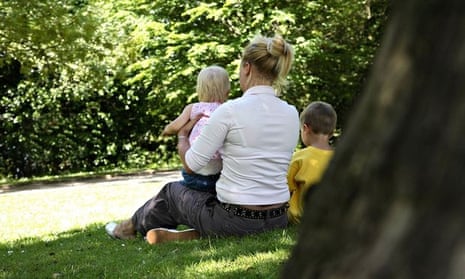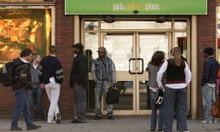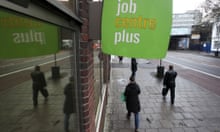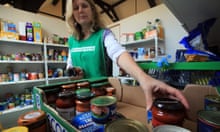Britain’s poorest families have suffered the most from the coalition’s welfare cuts and tax rises, according to a study by the UK’s leading tax and spending thinktank.
The Institute for Fiscal Studies said households were on average £1,127 a year worse off after the implementation of reforms since 2010.
Figures that assess the impact of the VAT rise to 20% and higher personal tax thresholds alongside a range of benefit cuts, found that the income of the lowest 10% of earners fell by more than 4% while the richest 10% suffered a drop of 2.6%.
The so-called squeezed middle were the least affected by cuts to tax credits and housing benefit that hit the poorest families. Middle income groups also avoided income tax rises and limits on tax-free pension contributions that affected households at the top end of the income scale, it said.
The IFS said it was not possible to assign all the tax rises and benefit cuts implemented since May 2010 to specific households. Those which could be apportioned amounted to an average loss of £489 per household a year, made up of an average gain of £321 a year from cuts to direct taxes, such as income tax, a loss of £333 a year from increases in indirect taxes, such as VAT, and a £477-a-year loss from benefit cuts.
Labour said the figures showed that families with children were among the biggest losers from the coalition’s cuts. Cathy Jamieson, shadow Treasury minister, said: “Families with children have been hit hardest of all by David Cameron’s choices – a clear betrayal of his promise to lead the most family-friendly government ever.”
The report is expected to fuel concerns that another wave of welfare cuts after the election will further dent the finances of low income families.
George Osborne has ruled out further income tax or VAT rises, claiming that after the election a Tory government could achieve most of its deficit reduction from savings on welfare budgets and efficiency savings in government bureaucracies.
London and the south east were the worst hit regions in percentage terms, with those on higher-than-average incomes in the two areas suffering more from the impact of tax rises and the withdrawal of child benefit. Those lower down the income scale living in private rented accommodation, especially in London, also suffered more than other parts of the country from the housing benefit cap.
Surprisingly, the report shows that middle-income, working-age households without children gained from the coalition’s changes, though largely because they received few benefits before the coalition came to power. They also gained significantly from the coalition’s large increases in the income tax personal allowance.
Middle-income earners with children fared worse, losing tax credits and, among the better off, child tax benefit.
The richest tenth of households have seen their direct tax liabilities increase following higher national insurance rates, a lowering of the 40% tax rate threshold and restrictions on tax relief on pension contributions.
James Browne, a senior research economist at IFS and co-author of the report said: “Whichever way you cut it, low-income households with children and the very richest households have lost out significantly from the changes as a percentage of their incomes. Increases in the tax free personal allowance have played an important role in protecting middle-income working-age households meaning that those without children have actually gained overall.”
Jamieson said: “For all the government’s claims, this report shows the coalition has raised tax by over £13.5bn a year. And for millions of working people, the rise in VAT and cuts to things like tax credits have more than offset changes to the personal allowance.”
A Treasury spokeswoman, however, said: “Today’s report from the IFS confirms that the richest have lost the most from the government’s changes to taxes and welfare.
“Treasury analysis has shown throughout the parliament that the richest 10% of households have made the largest contribution to reducing the deficit.
“The Treasury presents the most complete, rigorous and detailed record of the impact of this government’s policies on households. At the autumn statement this confirmed that the richest 20% of households will contribute more to reducing the deficit than the remaining 80% put together.
“UK income inequality is now lower than when this government came into office.”








Comments (…)
Sign in or create your Guardian account to join the discussion